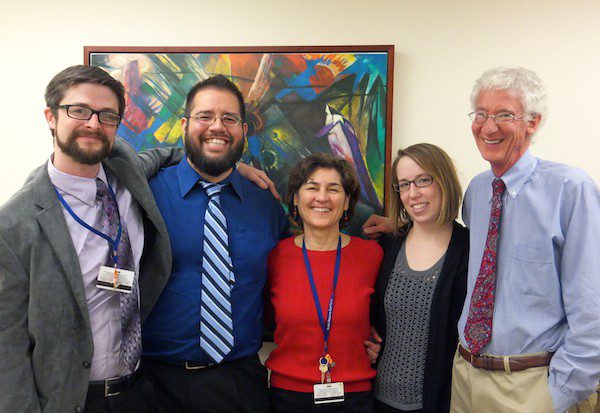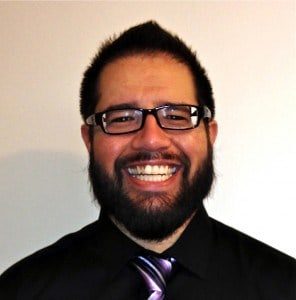The following first appeared in the MAPS Bulletin:
Psychedelics have recently reemerged in mainstream culture, with novel scientific research and major media outlets making a strong case for changes in the prohibitive policies currently impeding further progress in the field of psychedelic research.
Researchers at institutions worldwide (e.g., Johns Hopkins, Harvard, Yale, UCLA, NYU, Stanford, University of New Mexico, University of Zurich, Imperial College London, Hannover Medical School, Autonomous University of Barcelona, Norwegian University of Science and Technology, and others) have gone against the grain of current cultural conventions to investigate drugs that have long been taboo in the academic establishment, like psilocybin, LSD, ayahuasca, Salvia divinorum, and MDMA. In the midst of all this, a new generation has arrived on the scene wondering how and where they can get involved with the 21st century’s burgeoning psychedelic renaissance.
Some of psychedelic science’s leading minds have weighed in on the matter, including the late Andrew Sewell, M.D., whose passing is still being mourned in the community. The general consensus has been to get a solid footing in academic research, and to pursue a medical degree with psychiatric training, or a Ph.D. in chemistry, pharmacology, neuroscience, or psychology (see Dr. David Nichols’ excellent piece at the above link). For those wanting to become successful researchers in the field, Katherine MacLean, Ph.D., an experimental psychologist researching psilocybin and meditation at Johns Hopkins advises, “Get as much mainstream education and training as you can, be an impeccable scientist, and don’t be afraid to take risks.”
Clinical psychology and psychiatry are also becoming increasingly vital to psychedelic research. As more studies get off the ground, clinicians trained to deliver psychedelic-based interventions will be needed. Ingmar Gorman, M.A., is a doctoral student in clinical psychology at the New School for Social Research studying MDMA-assisted psychotherapy for posttraumatic stress disorder (PTSD). He states, “We need clinical researchers.
We need researchers who are sensitive to the intricate and sometimes paradoxical nature of psychotherapy.” Similarly, Brian Anderson, M.D., a Stanford-educated physician with a research background in the therapeutic use of ayahuasca, remarks, “I’ve been feeling a difference since 2010 when a lot of good press [about psychedelics] started coming out. In my psychiatry residency interviews I was able to have real conversations with interviewers about psychedelic therapy. Pretty much everyone was open-minded enough to consider it.” But he also cautions, “There’s a required subtlety to it; a friend of mine last year talked extensively about his interest in psychedelic therapy in his personal statement and didn’t match into psychiatry residency.”
Additionally, Thomas B. Roberts, Ph.D., suggests a multidisciplinary approach, highlighting studies in philosophy, anthropology, and the humanities as alternative ways of engaging psychedelic-related topics. For example, Danielle M. Giffort is a doctoral candidate in sociology at the University of Illinois at Chicago who studies how scientific credibility is created and maintained.
Danielle developed an interest in psychedelics after witnessing a close friend undergo a transformative experience with LSD, and decided to use her background in sociology to tailor her dissertation research to explore psychedelic science as a case study in scientific legitimacy. She recommends “connecting an interest in psychedelics with broader conversations happening in your field of study.”
For now, there are still relatively few labs conducting government-approved scientific research with psychedelics. If you wanted to get involved, you would have to be near one of these institutions, and have some relevant education. As a research assistant you could start with a Bachelor’s degree, and in some labs you can work as an intern as an undergraduate. Most of this work involves data management, paperwork, and administrative tasks. With some graduate education you could become a research scientist (Master’s or Ph.D.) or postdoctoral fellow (Ph.D. or M.D.) who assists in conducting studies, analyzing data, and writing manuscripts. A final step above this would be starting your own line of research with psychedelics as a Principal Investigator, for which you’ll have to be well-established with an M.D. or Ph.D., be at an institution that will approve your work, and have ample publications and expertise in an area related to the research. As you can see, this is not a summer project and requires many years of schooling and hard work regardless of your field of expertise.

Of course, not everyone is so keen on higher education. This does have some logic to it, since even if you were to get a Ph.D. or an M.D., there are no guarantees you would be able to work specifically with psychedelics. Funding and institutional support to conduct such research is scarce for now, with the majority of financial support coming from private non-profit organizations such as Heffter Research Institute, the Beckley Foundation, the Council on Spiritual Practices, and MAPS. As the work progresses we are hopeful the tide will turn to make the research easier to conduct. For now, there are still a number of ways to get involved that don’t necessarily require an advanced degree.
Many organizations do psychedelic-related work outside a laboratory setting. Harm reduction is a particularly important area where groups like the Zendo Project and DanceSafe offer invaluable services to promote safety within the psychedelic community. The Zendo Project provides onsite compassionate care for individuals having challenging psychedelic experiences at festivals such as Burning Man and Boom. DanceSafe provides drug education at raves, nightclubs, and other dance events, including onsite adulterant testing, and currently has more than 10 local chapters across North America. Besides the festival and club scene, groups like MAPS and others provide excellent outlets for contributing to the cause.
I would like to offer these basic principles as pointers that may be applied no matter what path you take:
Educate yourself.
If this is an active area of interest for you, stay in the know. Thanks to the Internet this is easier than ever before (e.g., Google Scholar can be set to automatically notify you of new publications on any subject). Keeping up-to-date with current findings can make you a powerful voice of reason in the debate around the relative harms and merits of psychedelics. For instance, a recent large-scale study found that psychedelic use predicted decreased rates of repeat incarceration for drug-related offenders on parole (Hendricks, et al., 2014). Another found in a random sample of American adults that psychedelic use was associated with lower rates of mental illness (Krebs & Johansen, 2013). Rather than being simply pro-psychedelic, it helps to have a handle on the facts.
Understand the opposition.
Many of your friends may think psychedelics are great, but it’s important to realize a large portion of the population believe these drugs to be universally harmful. This is often attributable to misinformation and/or misunderstanding, but it’s absolutely true that in some cases psychedelic use has led to harm and even death, so it’s important not to dismiss people outright if they aren’t 100% in support of psychedelics. As much as you can, try to engage in a meaningful dialogue, and keep an open mind. As representatives of an unconventional perspective, it helps to be diplomatic. In the same vein, it’s key to know your audience. If you find yourself in a situation where you’ll be speaking about psychedelics, feel out who is present. You don’t want to step into a room full of law enforcement and start talking about how horrible the police are, and you generally don’t want to show up at a scientific conference and start talking about “tripping.” Furthermore, those with previous personal experience with psychedelics may choose to refrain from discussing it, as it can detract from the credibility of their professional work with psychedelics, potentially creating barriers to employment and funding. Thus, it helps to be aware of people’s leanings, to appeal to their sympathies, and to speak in a language they can understand and hopefully get behind. This can make your message more palatable, and keep people from going on the defensive before they get the chance to consider your perspective.
Reach out.
Finding allies is imperative. This can consist of networking at conferences, workshops, and other events (which is partly how I got my job), as well as emailing or otherwise introducing yourself to people who work in areas of mutual interest. Once your name is out there, you have a much better chance of getting your foot in the door. Also valuable is finding a mentor who can show you the ropes in a given area. During my graduate education, teachers like Jim Fadiman, Ph.D., and Charles T. Tart, Ph.D., were instrumental in my development, and now as a postdoctoral fellow, working with Matthew W. Johnson, Ph.D. and Roland R. Griffiths, Ph.D., has greatly contributed to my skills as a critical thinker, scientist, and writer.
Be creative, and persistent.
There’s more than one way to get where you’re going. If you are passionate about a particular subject, there is almost certainly a way to make that part of your life. It might not be obvious, and may take a good bit of trial and error, but ultimately creativity and persistence are key. Amber Lyon, an Emmy-award winning writer, filmmaker, and journalist states, “I’m not a doctor or scientist, but am offering my skills as a journalist to spread accurate information about the medicines. Psychedelics are some of the most profoundly effective substances for healing the mind and body, yet the majority of news coverage centers on arrests for drug possession and the rare festival death. To help solve this problem I have created Reset.Me, a news website devoted to independent, accurate coverage of psychedelic medicines.”
Find your niche.
In academia you are usually expected to become an expert in a relatively narrow field of inquiry, and it can also help to be specific about your interests in non-academic settings. For example, in science it’s not very useful to say you have an interest in a broad area like psychedelics. It’s much better to focus on a particular topic, like psilocybin in the treatment of smoking addiction. It’s very hard to work in abstract generalities, but a focused problem or issue is much more amenable to proper investigation.
Cultivate other interests.
There are few (if any) people who make their living exclusively by working with psychedelics. Even top-notch researchers spend much of their time working in other areas. For instance, Matthew W. Johnson, Ph.D., Associate Professor at Johns Hopkins School of Medicine says, “I have expertise in psychological processes of addiction, self-control, and the abuse liability assessment of novel drugs. Those areas dovetail very nicely with my work in psychedelics, particularly my focus on using psilocybin to treat addiction. But my non-psychedelic research in these domains is what allows me to obtain grants as Principal Investigator and maintain my academic position.”
Organize.
A “think globally, act locally” mentality can be critical in bringing the insights of psychedelic culture to the population at large. Hence, if there is no real psychedelic hub in your immediate geographic area, it may be up to you to create a forum for like-minded individuals. Bookstores, universities, nightclubs, and coffee shops all provide potential havens where groups can meet to discuss ideas, and possibly begin initiatives to take action in ways that fit unique local needs. In this way, building community can help to make a positive impact. Nese Devenot, a doctoral candidate studying psychedelic philosophy at the University of Pennsylvania, recently organized Psychedemia, a multidisciplinary conference devoted to psychedelics. She notes that the conference “received absolutely zero resistance or pushback from any quarter. The fact that an Ivy League medical school was willing to sponsor an academic conference in which scientists, artists, philosophers, students, and activists shared common ground is sign enough that these are legitimate topics to explore in academia today.”
Be a psychedelic citizen.
The crux of the matter concerning psychedelics may not be the drugs themselves, but the realizations these drugs can help facilitate and the way that we ultimately bring those realizations into the world through our very being and our interaction with others. Thus, the psychedelic movement is not about intoxication, but about embodying the values inherent in the psychedelic experience as one of the ultimate ends of “psychedelia.” Albert Hofmann, Ph.D., the venerable Swiss chemist who first synthesized LSD, wrote:
I share the belief of many of my contemporaries that the spiritual crisis pervading all spheres of Western industrial society can be remedied only by a change in our worldview. We shall have to shift from the materialistic, dualistic belief that people and their environment are separate, toward a new consciousness of an all-encompassing reality, which embraces the experiencing ego, a reality in which people feel their oneness with animate nature and all of creation.
If you stand with Hofmann and others who believe in the importance and increasing urgency of such a change, then now’s the time to go out and make your mark.
References
Hendricks, P. S., Clark, C.B., Johnson, M.W., Fontaine, K. R., & Cropsey, K. L. (2014). Hallucinogen use predicts reduced recidivism among substance-involved offenders under community corrections supervision. J Psychopharmacology January 2014 28: 62–66. Retrieved from http://jop.sagepub.com/content/28/1/62.full.
Krebs, T.S. & Johansen, P.Ø. (2013). Psychedelics and Mental Health: A Population Study. PLoS ONE 8(8): e63972. doi:10.1371/journal.pone.0063972
Albert Garcia-Romeu, Ph.D. is a postdoctoral fellow at Johns Hopkins University School of Medicine, where he is currently researching the effects of psychedelic compounds in human subjects with a focus on psilocybin as a potential treatment for addiction. He received his doctorate at the Institute of Transpersonal Psychology where he studied the measurement and experience of self-transcendence in healthy adults. Other research interests include clinical applications of altered states of consciousness and their underlying psychobiological mechanisms, psychopharmacology of hallucinogens, meditation and mindfulness-based interventions, spirituality, existential distress and end-of-life care, and qualitative and mixed methods inquiry.
This piece first appeared in the MAPS Bulletin.

